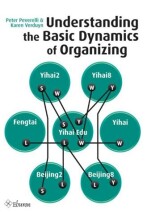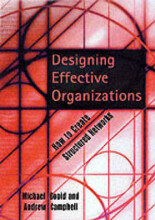Gluckler: Bridging uncertainty in management consulting: The mechanisms of trust and networked reputation
13 important questions on Gluckler: Bridging uncertainty in management consulting: The mechanisms of trust and networked reputation
What does the article of Gluckler analyzes and identifies?
Gluckler theorized that market mechanisms form an economics sociology perspective, develop a sequential model of how clients select their consultants, and thus outline how the competitive advantage of client networks contributes to firm growth. Which 2 most significant types of uncertainty in the consulting sector did they identified?
2 Transactional uncertainty (confidentiality, intangibility, interdependency)
>> Both kinds of uncertainty are proposed as aspects of the limited extent of institutional or system trust.
What is the central tenet (grondbeginsel) of the research of Gluckler?
- Higher grades + faster learning
- Never study anything twice
- 100% sure, 100% understanding
Gluckler sketched 3 areas of formal institutions which are rudimentary. Their absence reduces the degree of system trust or institutional trust. Which 3 forms of formal institutional uncertainty are there?
2 Unbounded industry
3 Unbounded service line and product standards
The regulation of the consulting business in terms of logal or organizational norms and standards is minimal, which opens the market potentially to any individual or corporate service provider and increases performance risk. What is the problem with this? (Gluckler)
The consultancy business is riddled with another source of uncertainty, associated with most knowledge-intensive services: transactional uncertainty. Namely the businesses its: (3) (Gluckler)
2 Intangibility
3 Interdependency
The interactive nature of consulting in the generation of a project result, carries uncertainty for both parties. Which 2 uncertainties are this according to Gluckler?
2 For clients: they depend on the consultant's capabilities, commitment and integrity in the project.
Gluckler developed an account of how client uncertainty is reduced and they explorere the consequences for the dominant market mechanism in the consulting business. What is the core?
Gluckler states that there is a hierarchy for 3 ways to choose a transaction partner (from a client perspective). The client is assumed to pursue (nastreven) 2 objectives: choosing from a wide variety of consultants and gaining a maximum of certainty about them. Describe the 3 way hierarchy?
2 Experience-based trust: when relations have been positive in the past, positive expectations will guide future action
3 Networked reputation: information from a trusted informant that he has dealt with that individual/firm and how he found him.
Networked reputation emerges as a vital competitive factor of firm growth. Explain this with 4 main reasons (Gluckler)?
2 Networked reputation operates as a social substitute for service quality: networked reputation absorbs consulting quality and becomes a key factor of competition
3 Arise in barriers of entry for competitors and newcomers (due to networked reputation)
4 It widens the market scope (more networked contacts = more potential partners)
What are the most critical criteria in the clients choice of an consultant? (Gluckler)
The criteria for choosing a consultant combined with the interpretation of the survey data of Gluckler and an analyses resulted into a sequential model of assignment decisions, which prioritizes social institutions and concrete structures of social relations over purely economic factors of price and quality to encompass a four-tier sequence. Which 4?
2 Experience-based trust: when relations have been positive in the paste, positive expectations guide future actions
3 Networked reputation: information from a trusted informant that has dealt with him/the firm before
4 After 1, 2, and 3 not so many firms are remained. Now you can base your decision on price.
Summarize the 2 overarching and 6 specific uncertainties in the consulting industry: (Gluckler)
a Professionalization, b Industry barriers, c Service standards
2 Transactional ucnertainty
a Confidentiality, b Intangibility, c Co-production
The question on the page originate from the summary of the following study material:
- A unique study and practice tool
- Never study anything twice again
- Get the grades you hope for
- 100% sure, 100% understanding





























